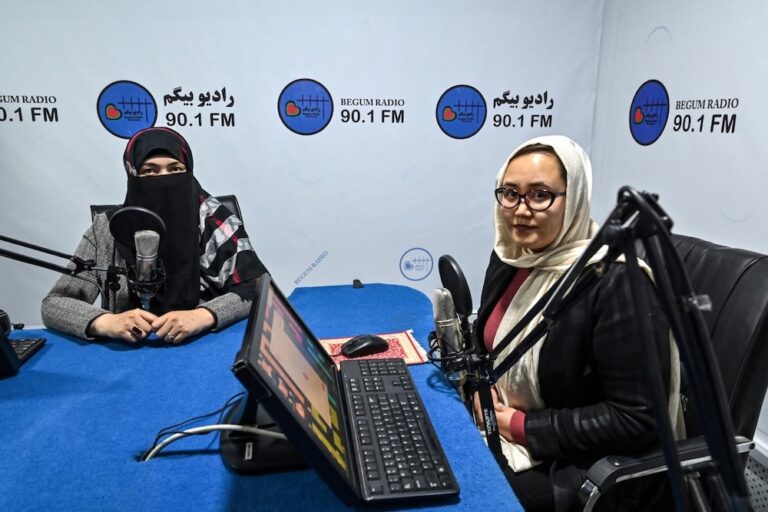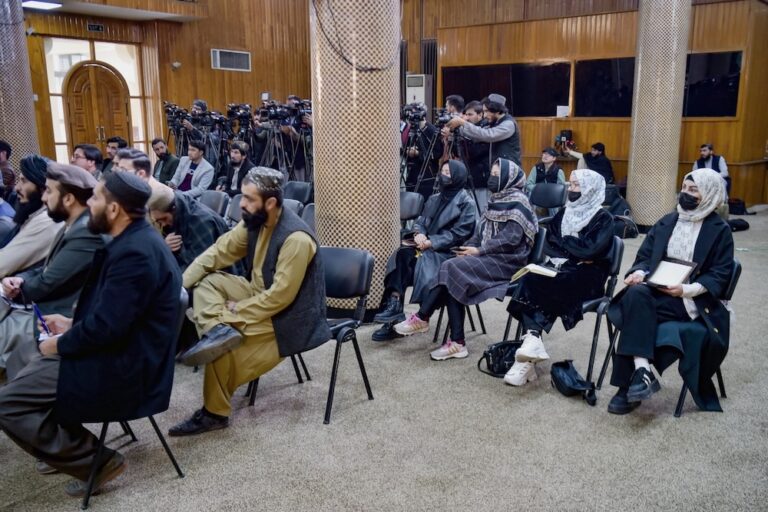(RSF/IFEX) – On 22 January 2008, a court in the northern city of Mazar-i-Sharif passed a death sentence on a young journalist, Sayed Perwiz Kambakhsh, for alleged blasphemy. The trial was held behind closed doors and without a lawyer to defend him. His brother, fellow journalist Sayed Yaqub Ibrahimi, told Reporters Without Borders: “I saw […]
(RSF/IFEX) – On 22 January 2008, a court in the northern city of Mazar-i-Sharif passed a death sentence on a young journalist, Sayed Perwiz Kambakhsh, for alleged blasphemy. The trial was held behind closed doors and without a lawyer to defend him. His brother, fellow journalist Sayed Yaqub Ibrahimi, told Reporters Without Borders: “I saw my brother leave the court. He was very anxious. All the family was, too.”
“We are deeply shocked by this trial, carried out in haste and without any concern for the law or for free expression, which is protected by the constitution,” Reporters Without Borders said. “Kambakhsh did not do anything to justify his being detained or being given this sentence. We appeal to President Hamid Karzai to intervene before it is too late.”
At a news conference on 21 January, Hafizullah Khaliqyar, the deputy provincial prosecutor in charge of the case, threatened to imprison all journalists who support Kambakhsh, adding that “Kambakhsh has confessed to the crime and must be punished.”
Kambakhsh was supposedly arrested because of a controversial article commenting on verses in the Koran about women, although it has now been established that he was not the article’s author. Rahimullah Samandar, the head of the Afghanistan Independent Journalists Association, said he was in fact arrested because of articles written by his brother, Ibrahimi, criticising the provincial authorities.
A reporter for the newspaper “Jahan-e Naw” (“The New World”) and a journalism student at Balkh university, Kambakhsh, 23, was arrested on 27 October 2007.


